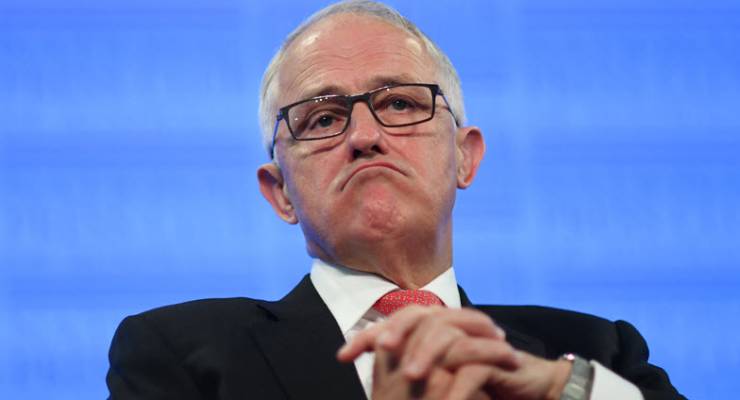
What exactly consists good government is subjective, but one popular measure is how much legislation a government manage to pass over any given time period.
Whether it’s the first 100 days, first year or even per day there are many ways we like to slice and dice government productivity. In a country like Australia where we have a bit of a habit of changing PMs like they’re smoke alarm batteries, it’s handy to be able to pin down just how effective a prime minister is at negotiating Parliament.
Judging Rudd, Abbott and Gillard
Over at The Guardian Nick Evershed did just that for all prime ministers up until Tony Abbott, with Julia Gillard outranking every one of her counterparts to oversee 551 acts at an average of 0.502 passing per day. It’s a significant increase on the rate of her predecessor turned successor Kevin Rudd who oversaw 419 in total (0.412 per day) and an even greater one on Tony Abbott whose 726 days in office saw 275 acts passed at a rate of 0.379 per day.
According to ANU Professor John Uhr at the Centre for the Study of Australian Politics, the key to Gillard’s success was not only her ability to work with the cross bench but her well renowned negotiation skills that brought home that high rate during a minority government.
“It did require remarkable astute negotiation, formal agreement with the junior partners and junior players, the Greens in particular, and the success rate then is in her case weirdly high,” he told Crikey.
“You’d probably find that the Greens and possibly even the opposition had their own success scores during that time. It wasn’t just a government imposing its own will it was a government steering through legislation including taking account of non-government preferences, changes and amendments when necessary.”
On the flip side, Abbott and Rudd have been known for their alleged respective failings when it comes to negotiation and compromise which likely played a role in their lower rates of bill passing.
The only prime minister not on the list is current PM Malcolm Turnbull, although rumours abound about just how long he’s got left so you never know when Evershed may be updating that dataset.
An unkind commentator would say the PM hasn’t passed much of his own legislation and instead that his right wing backbench has been doing swimmingly, but based on the numbers how does our current leader shape up?
Judging Malcolm Turnbull
As of December 7th Malcolm Turnbull had spent 814 days in office, however 73 of those days were on one of the lengthiest election campaigns in history. Take away those weeks on the campaign trail and Turnbull is tailing Abbott, Gillard and Rudd having overseen the assent of 269 bills over 741 days in comparison to Abbott’s 275 in 726 days.
His first year wasn’t any better, with the PM overseeing the passing of 104 acts compared to Abbott’s 116, Gillard’s 132 and Rudd’s 133.
Still it isn’t all bad news for Turnbull according to Professor Uhr, because whilst being a potential measure for efficacy the number of bills passed by a government is far from the be all and end all when it comes to effective governing.
“Lots of legislation will be administrative tinkering and lots of it will attract no opposition so it will look like governments are being effective but it’s matters of less importance than the one which really does matter which is the budget … that’s the key one that really stalled Tony Abbott” he said.
Unlike the budget problems that plagued the Abbott government, Turnbull has overseen a comparatively more successful Coalition, it just doesn’t show up in the per day numbers.
Still, it’s far from smooth sailing with the PM having compounded the government’s problems by reducing their majority to one seat in the Reps last year creating a much more cautious environment for the Coalition.
“It may not be that he’s weak,” says Professor Uhr, “it may be that he’s prudent, sensible and maybe he’s doing all the work by regulation behind the scenes that none of us pay close attention to.”







the only thing turnball is good at passing happens once a day in his toilet and is as smelly as his ideology and trickle down policies, as soon as we pull the chain and flush him and his corrupt mates down the bowl the better.
I’ve read that company profits have skyrocketed this year and, elsewhere, Alan Austin wrote this [and backs it up with data from Credit Suisse] :
“The share of Australia’s mega-rich has gone up consistently since the Coalition got elected in 2014 ….
Seems very productive to me.
Providing you’re one of the 1% and not an ordinary pleb.
“What exactly consists good government is …” – did you mean “… comprises good government…”?
As someone said of Truman Capote’s work, “that’s not writing, it’s typing”.
….. Are we permitted to judge Malcolm ….?
Tom Hughes Snr was not a fan.
Somehow I doubt that Talcum likes the thought that he is primus inter pares.
Primus he could preen about but must shudder at being thought equal to his loyal colleagues, oh the horror.
Does that make him a Pip?
Fizza has blown he’s chances as regards the Chinese community is concerned , he has managed to pee them off big time so as to get at Sam, i have chinese cousin’s in Sydney and believe me they are seething, needs to pull he’s head in, new election needed ASAP.